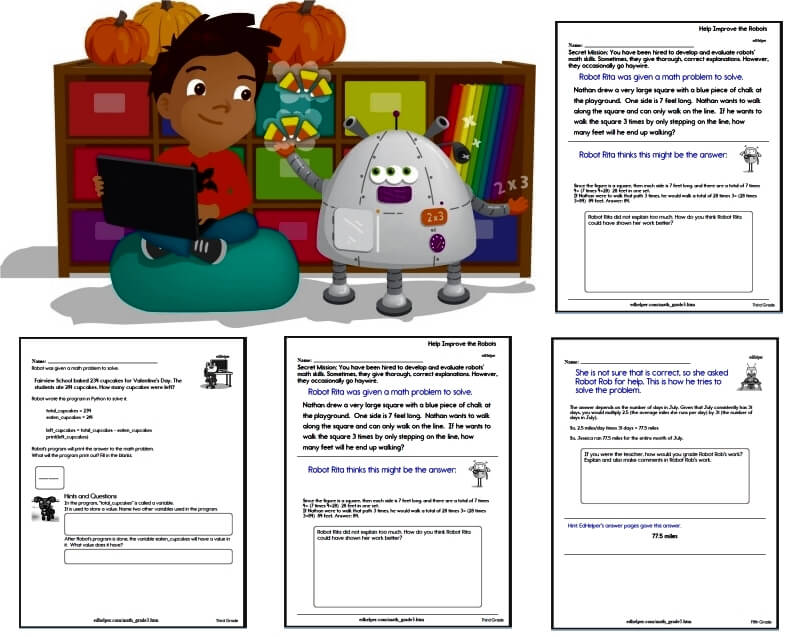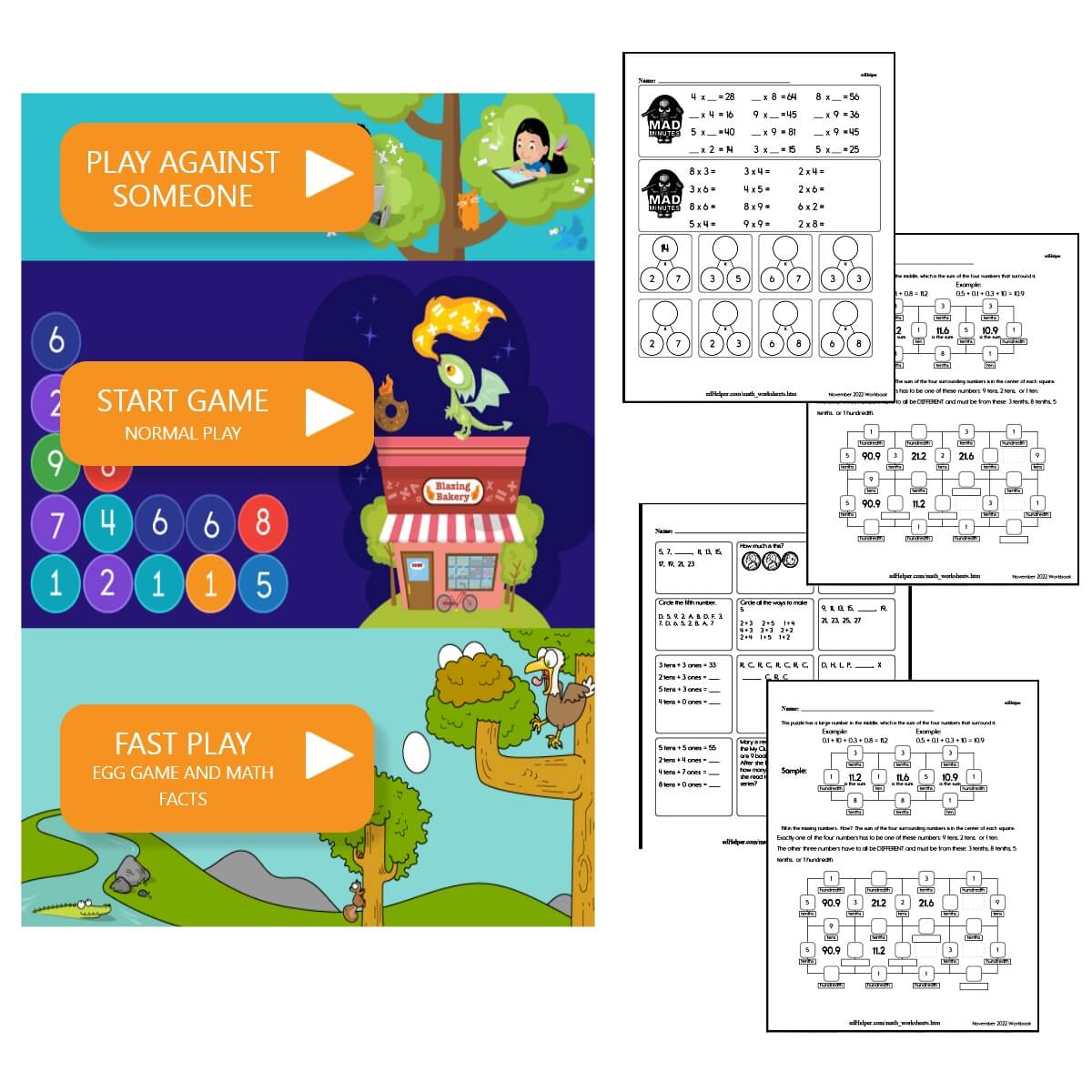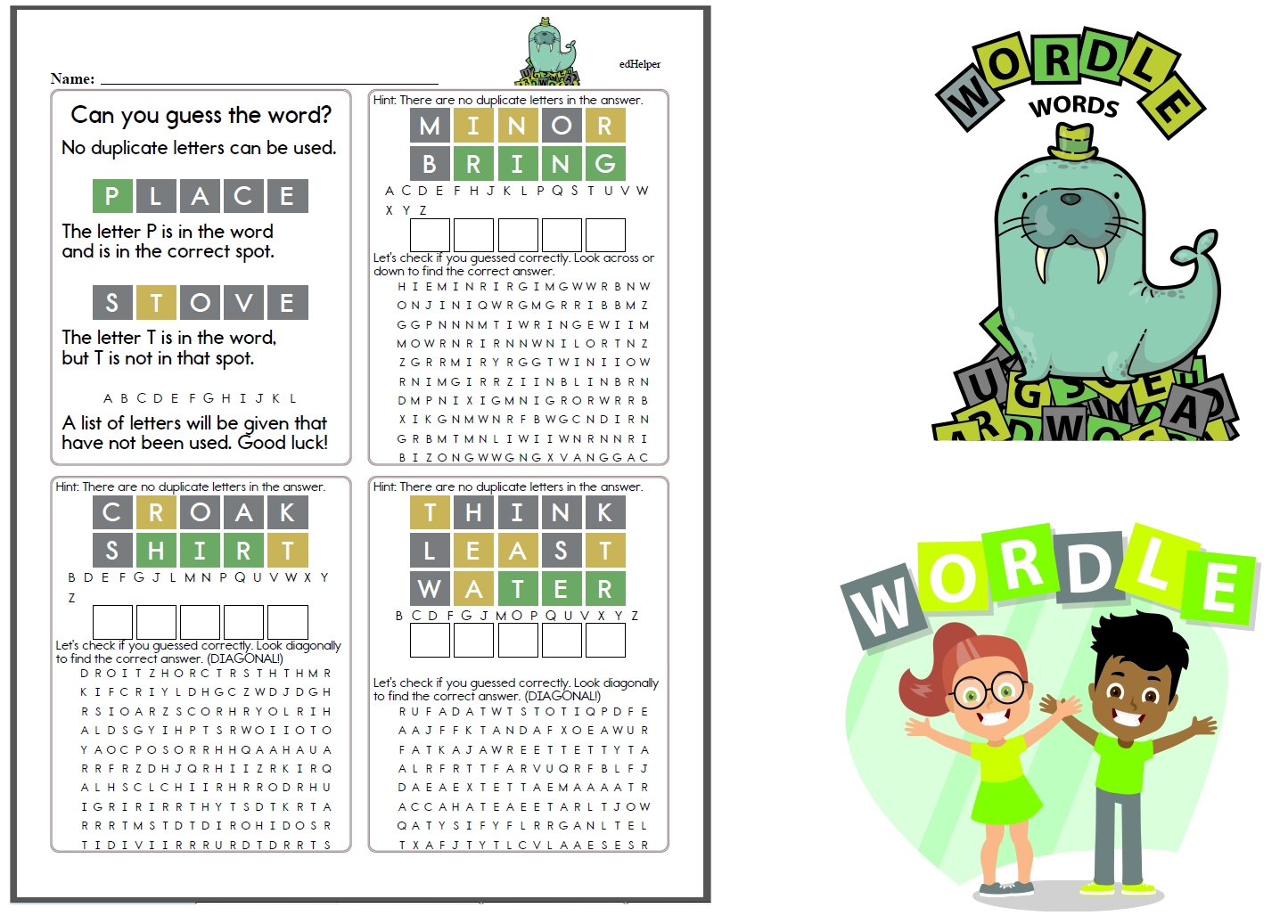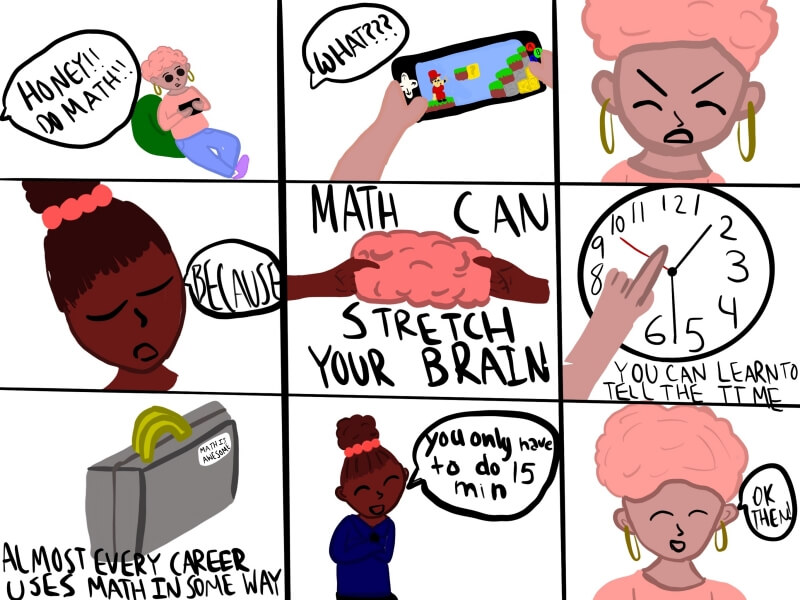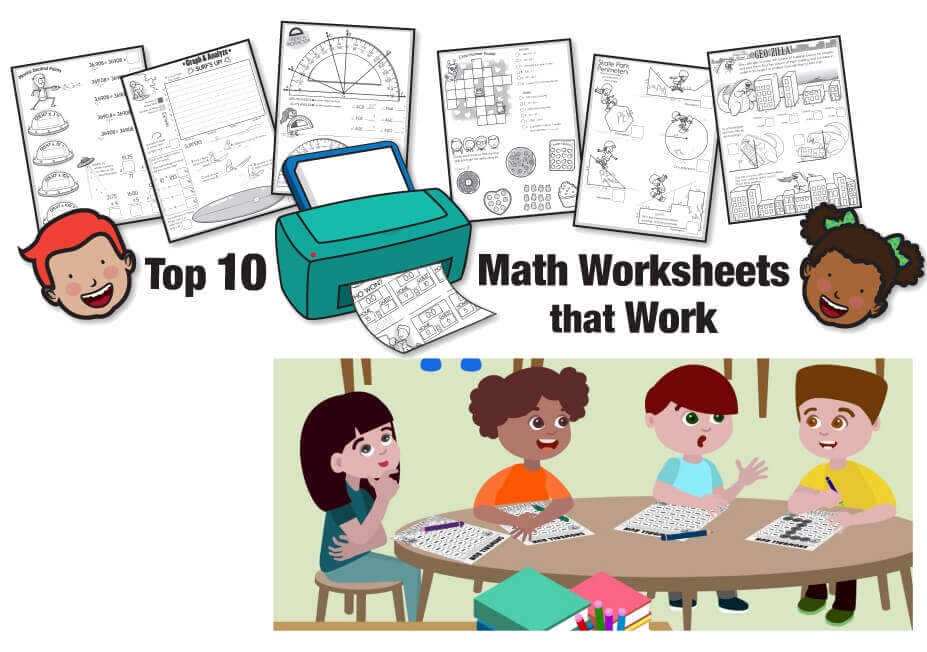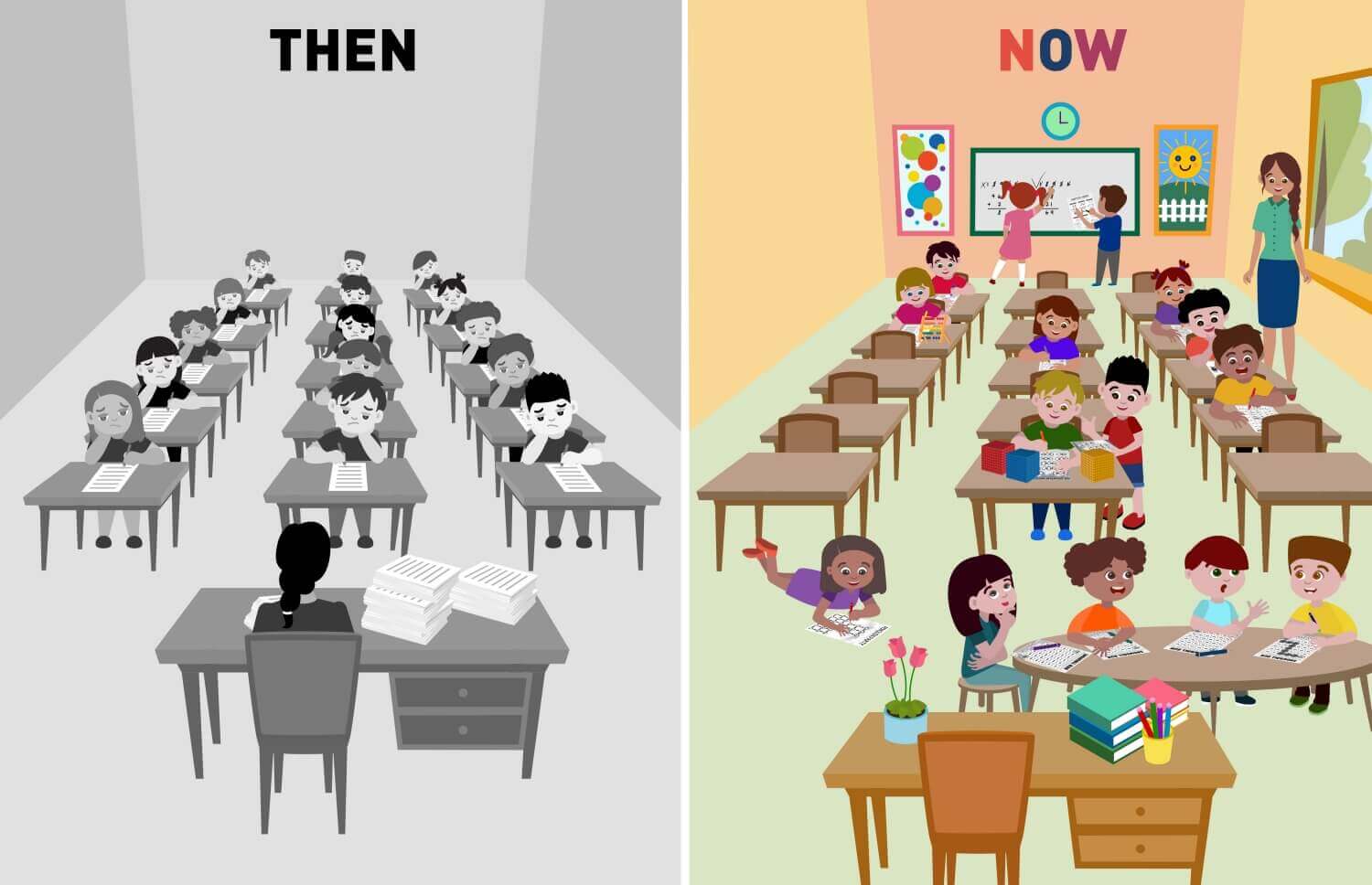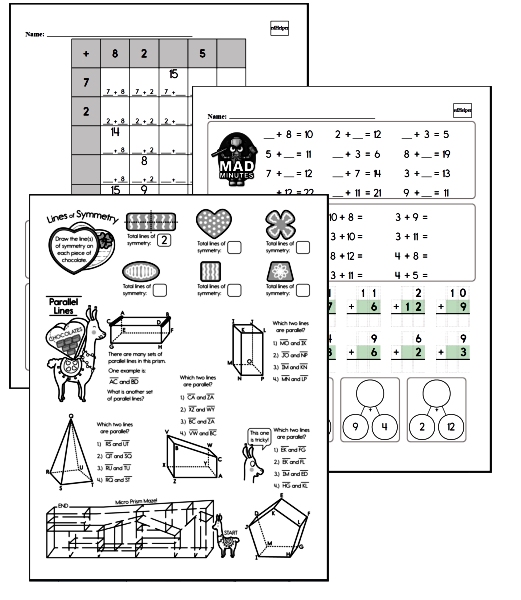Summer Fun and Fundamentals: Engaging resources to support learning (and fun!) all summer long
By: edHelper Staff
Updated: Jul 12, 2021
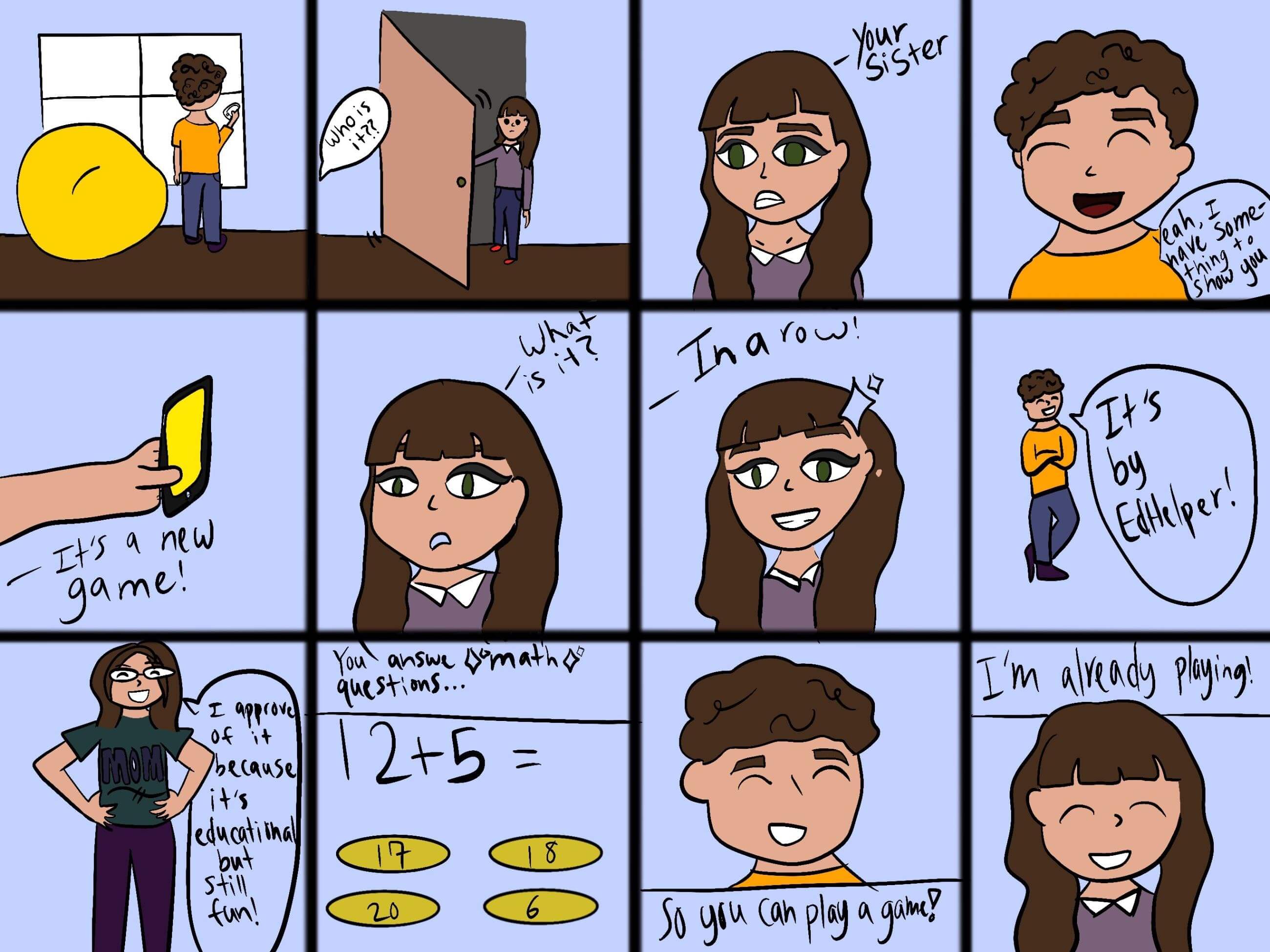
It's here! Summer was made for sunshine and popsicles. It was made for watermelon seed spitting contests and hours spent at the pool. There's no doubt about it-summer was made for fun, but that doesn't mean you can't use the time before a new school year begins for a bit of fundamentals as well.
Summer is a great time to engage in active learning. Children are born curious, and summer is a great time to capitalize on that curiosity. As parents, there are several ways you can keep your children active and engaged this summer.
Minutes to Fluency: Playing Online Math Games in the Summer
In this age of technology, it's easy to convince students to play online math games. But as educators, the challenge is to find purposeful technology that they will not only enjoy but that will help them grow academically. Hours spent online does not equal hours of academic advancement. In fact, the opposite is true. While staring at screens won't literally rot their brains, research shows that too much screen time has serious consequences for children.
EdHelper's Let's Play School Math Game is designed to be teacher driven but student centered, first- through fifth-grade students can now access this free and engaging game. Registered edHelper teachers can create class logins and distribute user codes to their students. When using the app this way, students will enter the class code and automatically be assigned grade-level appropriate math problems in each of the game centers. Teachers who opt to create class accounts will have the ability to log in and view student status, usage time, points earned and progress within each level. This data becomes a powerful tool that can be used to drive instruction and student accountability. Alternatively, students can opt to download the app to their phones, Chromebooks, or other devices, and play games as a guest without a class code. When playing as a guest, students (or parents) can select their grade level and begin exploring.
One of Students' games is the bakery. Who doesn't love a shop filled with limitless treats? As your students strive to solve each problem, bakery items will begin to appear. The goal of Let's Play School is to answer a series of varied math problems quickly and correctly. The challenge is to correctly complete all the questions before the baked goods hit the ground. Your students' speed and accuracy will earn students the most points (and the best practice!). Based on grade level appropriateness, students will find word problems, addition, subtraction, multiplication, division, patterns, etc. These are not just glorified flash cards. These quick questions encourage mental math and motivate students to really think!
Thoughtfully designed to be engaging and to encourage quick responses, Let's Play School is not overwhelming for students. It is not a game with rapidly changing graphics that ultimately lead to shorter attention spans. After a question is answered outside the bakery, the students take a quick break and head to a matching game. At the beginning of the session, they start with a series of grade-level-appropriate math facts and select two at a time to find a match. After finding a match, they head back to the bakery and complete their next problem. This quick break from the current graphics and type of math practice not only keeps students involved but also keeps them encouraged. They continue answering questions and making matches until they've reached their five minutes of practice time. The game then congratulates them and encourages them to come back again tomorrow.
Let's Play School is designed to support all learners in your classroom but will be especially beneficial for those who traditionally struggle with math. The app will help:
Increase confidence and computation skills: Students who lack confidence with basic computation are less likely to participate in class, take risks and give their best effort. When given the chance to play an online game, however, even for just a few minutes each day, students' confidence grows by leaps and bounds.
Students learn math as a language: Math is a second language for most students. It uses words they are not familiar with and symbols that represent directions they may find confusing. Playing simple math games will help solidify their understanding of math symbols and increase the speed at which they comprehend what is being asked of them.
Students who have a short attention span: Hours of online gaming does not help a student learn how to sit still in class, engage in collaborative conversations, or persevere through difficult tasks. It actually does the opposite. Five quick minutes on Let's Play School, however, will support their learning without the consequences that come from hours of flashing lights and rapidly changing screens.
Students enjoy math: Let's be honest; it can be very difficult to find the motivation to try and do something we really don't enjoy. When students don't enjoy math, they are reluctant to try to learn it. While not all learning can be deemed "fun," any time we, as educators, have the opportunity to make the experience more enjoyable, we should! Allow this app to help your students practice and play. When students see math as fun, they will be more willing to learn new skills.
Science
Looking for something phenomenal to do this summer? You're in luck! Phenomena are all around us. Any observable event is a phenomenon. Support your children this summer as they ask questions about the world around them, and use science to come up with the explanation. Why is one room of your home hotter than another? Does it have to do with the direction it faces and the location of the sun? What makes a soda can sweat? Why do you need rock salt when making homemade ice cream? Science can answer all of these questions and more!
Science in the City: The Museum of Science and Industry of Chicago has great ideas for science experiments that can be done at home, as well as Brain Games and STEM activities that can be completed with common household items.
Science at Home: Are you ready to make a leakproof bag? Better yet, why not make ice cream in a bag? There's no need to stop at just ice cream either-there are several edible science projects your children can attempt. The goal of each activity is to think about science, talk about science, and most importantly, do science this summer. Children don't need to have all the answers, but they can have all the fun!
Math
On average, students begin each new school year having lost 2.6 months' worth of math instruction from the year before. That doesn't mean forcing your students to spend eight hours with a set of flashcards each day. Instead, weave math (and fun!) into your everyday summer routines.
Math Games: Whether you have five, ten, or fifteen minutes for math fun, these quick games can help keep math in the mix this summer.
After a year of mostly digital instruction, you may be looking for less screen time this summer. Thankfully, there are quick and purposeful online math games that will enable your children to practice grade-level appropriate skills with just five minutes spent online.
Math Workbooks: Math workbooks are fantastic for supporting your students in the development of their math skills over the summer. Whether its reinforcing skills learned from the previous school year, revisiting those quickly covered due to limited instruction time, or getting a head start on the upcoming content, spending thirty minutes, twice a week using the engaging math worksheets from will build math confidence and help prepare them for the upcoming school year.
Math in the Real World: Headed to the movies? Have your children calculate the amount of money needed to buy tickets. See a sale rack at the mall? How much will those flip-flops cost if they are on sale for 20 percent off? This summer, help your children see math in the real world. This can work with coupons, a shopping challenge at a dollar store, or a real (or imaginary) lemonade stand.
Reading and Writing
Summer is the perfect time to get lost in a good book! Whether it's a mysterious "who-done-it," a favorite picture book, or a graphic novel, now is the time to grab a blanket, find a patch of shade under a tree, and read. How else can you encourage your children to read and write over the summer?
Write for Real: Start a postcard campaign. Who do you know who would appreciate receiving a postcard or a letter from one of your children? Set aside one hour a week and take turns creating and writing postcards to family and friends across the country and around the world. This is a great way to practice handwriting (after a year of nothing but typing!) and grammar while brightening someone's day.
Reading and Writing Workbooks: These creative and well-designed (and free!) workbooks are a great way to keep children's skills sharp over the summer. They don't require hours of attention each day; rather, a few minutes a few times a week will do the trick!
Reading for Rewards: Create a summer reading plan. You can use a reading calendar and have your children track the number of minutes they read each day or the days they read each week. Once they meet a predetermined goal, have a celebration!
Social Studies
Take advantage of real (or imaginary) summer vacations and use that to fuel your children's desire to learn about the world around them. They can learn the history of other states, study maps and plan a road trip, or study famous people from their community. The possibilities are limitless!
Stories behind the States: Have you ever wondered how states got their names? Chances are your children may be a bit curious too. Pick a place and learn about the origin of its name. Then, why not plan an imaginary trip! Research famous places to visit and sites to see, and then plan the best route to get there. Should you drive, fly, or take a train? How long will the trip last?
What's Your Story: Everyone has a story! Take some time this summer and write about yours! First, have your child select a brief biography and learn about someone else's story. Then take some time and begin to craft an autobiography. What are some of the events that have shaped their lives up to this point? What do they hope will happen in the years to come?
Summer was made for making memories! May this summer be a season of joy, laughter, and health for you and your children. Hopefully, this summer can also be an opportunity to revisit some skills from the past school year and have a lot of fun as they work on some fundamentals!


